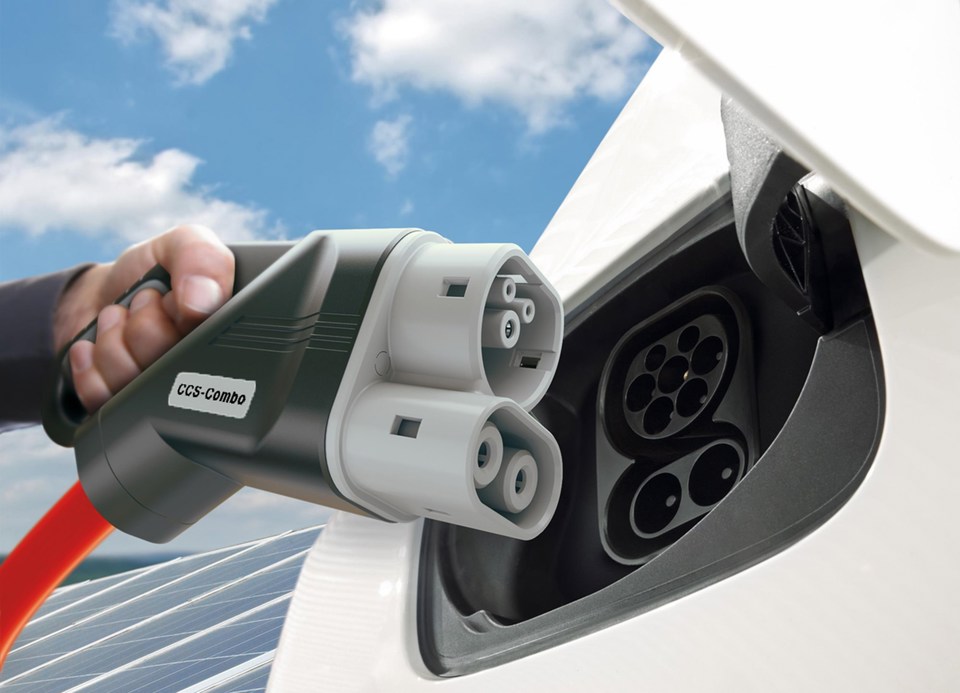Eye-catching headlines led to confusion over the detail of the government’s 2040 ban on new “conventional petrol and diesel” vehicles as many mainstream media outlets initially overlooked the omission of hybrid vehicles from the proposal.
The Department for the Environment and Rural Affairs (Defra) clarified the policy after AM sought more details about the definition of the ban following the publication of the government’s clean air plan yesterday lunchtime.
But while the BBC moved to inform motorsists of earlier mis-reporting which indicated an enforced adoption of EV vehicles in 2040, many outlets continued in a similar vein today.
The Financial Times reported “The UK has joined France to set an expiry date for cars that run on fossil fuels”, while the Daily Mail reported that “fears were growing” that the National Grid would struggle with the shift in demand from fossil fuels to electricity.
The Mail added: “Experts warn that when sales of new petrol, diesel and hybrid vehicles are banned, we will need the equivalent of to six nuclear power plants or 100,000 new wind turbines to keep Britain moving.”
Despite headlines which suggest the government's proposal would cause considerable upheaval to the motor industry, many manufacturers are already well on the way to realising a future where their entire range has the zero-emissions capability – with or without assistance from a combustion engine – that will be demanded in 23 years' time.
Last week Volvo revealed that all its new vehicles will be EV or hybrid from 2019 and BMW stated that all its models could be adapted to include electrification when it announced its plan to build the Mini EV in Oxford earlier this week.
Lexus, meanwhile, currently offers every model in its range with the option of a hybrid drivetrain.
Dr Frederik Dahlmann, Warwick Business School assistant professor of global energy and researches the low carbon economy, said: “There is a good chance the market will have largely shifted towards EV vehicle before the deadline of 2040, other than specialist collector super cars and the classic car market."
However, Dahlmann said infrastructure investments would need to be adjusted to ensure a transition to EVs and hybrids is not “stopped in its tracks”.
Alex Bamberg, managing director, ChargePoint Services Ltd, added: “The market is accelerating much faster than the Governments’ deadline of 2040, we see an expediential take up of electric vehicles and charging which will bring the UK more in line with Norway’s deadline of 2025.
“In 2016, sales of alternatively fuelled vehicles (AFVs) experienced a huge increase, with demand up 22% across the year, and 10,000 motorists choosing to go pure electric.”
James Thornton, chief executive of environmental law firm ClientEarth – which took the government to the High Court to force publication of its clean air plan during the election period earlier this year – is among critics of the new plan, which it feels does not move to cut NOx emissions fast enough.
Thornton described the plan as “little more than a shabby rewrite of the previous draft plans”, adding that it was “underwhelming and lacking in urgency”, adding: “The 2040 diesel and petrol ban, while important is a diversionary tactic and doesn’t deal with the public health emergency caused by illegally polluted air, now.”
Thornton also criticised the government for failing to commit to a diesel scrappage scheme.
















Kel - 29/07/2017 15:36
Can I suggest that those involved in the plan to see all internal combustion engined vehicles scrapped by 2040 and that includes we retailers ,should get hold of a copy of the Daily Telegraph of the 27th July which illustrates the impossible volume of electricity that would be required. It looks very much as though the majority of the Government have gone on their "Hols" and left Gove (A man of little distinction) to take the flack !!